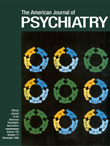Informed Consent: Assessment of Comprehension
Abstract
Objective:The authors designed and evaluated a structured and rigorous informed consent procedure involving subjects with schizophrenia.Method:Informed consent forms were read and explained to 49 schizophrenic patients participating in ongoing clinical treatment research trials. The subjects answered a questionnaire relating to each research protocol. Protocol procedures were reiterated until the patients answered 100% of the questions correctly. Subjects were asked the same questions 7 days later to ascertain how much of the information they had retained. Results:The patients’ median score on the first trial of the informed consent questionnaire was 80% correct. To achieve 100% correct responses, 53% of the patients required a second trial of the questionnaire, and 37% of them required three or more trials. Scores improved between the first trial and the trial on day 7. Ninety-six percent of the subjects felt adequately informed, 66% reported participating in the research protocol for personal reasons, and 34% reported participating at the suggestion of others.Conclusions:These findings demonstrate that when adequate informed consent procedures are established, schizophrenic research subjects are able to understand and retain critical components of informed consent information. Am J Psychiatry 1998; 155: 1508-1511



